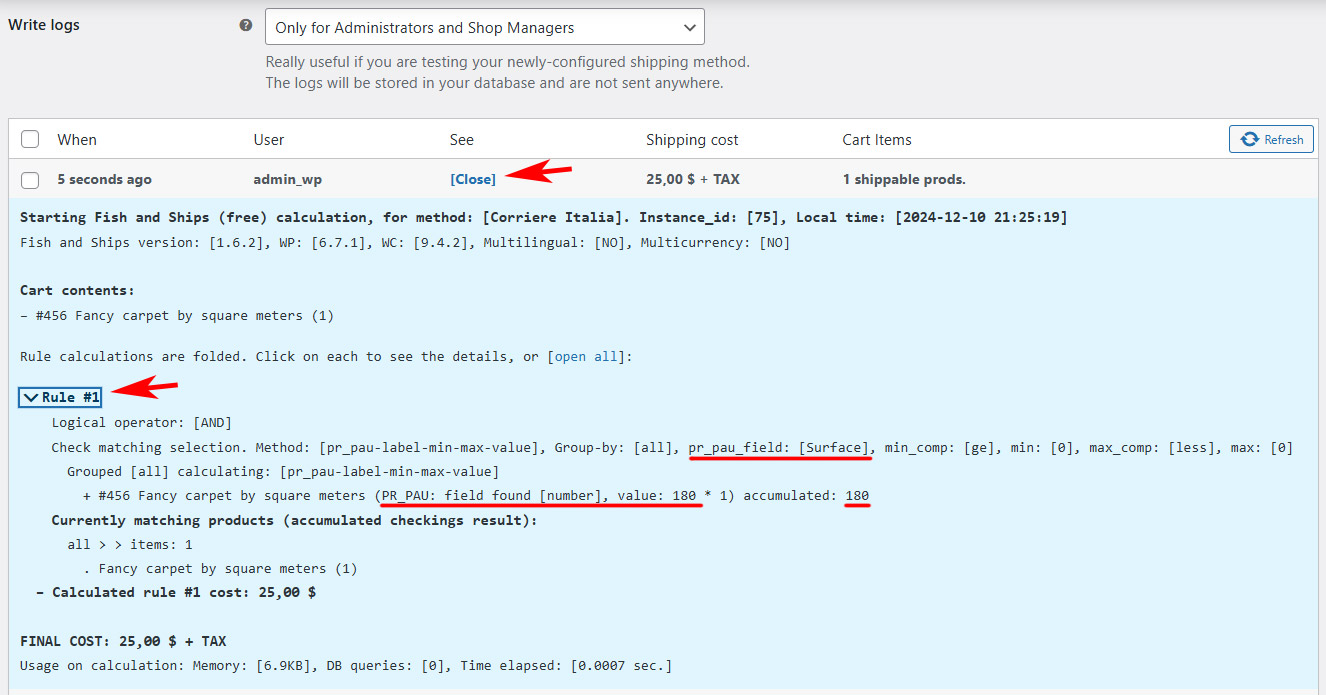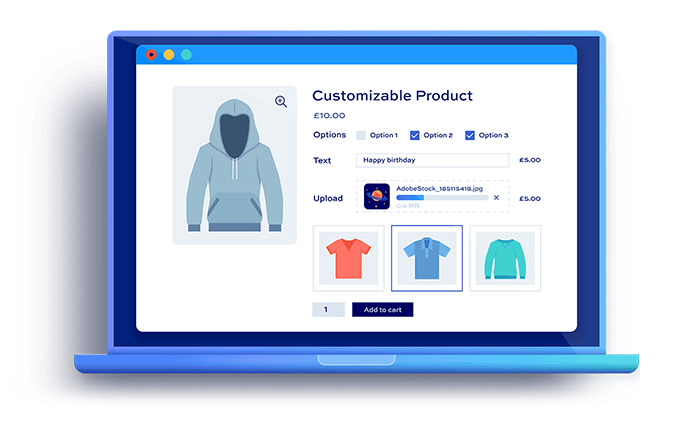
The integration of Advanced Shipping Rates for WooCommerce with the WooCommerce Product Add-Ons Ultimate plugin by Plugin Republic transforms the way shipping rates can be calculated by leveraging custom product data. Whether you’re selling bespoke items or managing variable-weight/size products, Advanced Shipping Rates for WC enables the creation of dynamic shipping rates tailored to customized products, providing exceptional flexibility.
When the plugin is active, new selectors appear in Advanced Shipping Rates for WC settings to support this integration seamlessly:

Table of Contents
- 1 The power of Shipping Rates based on Custom Fields
- 2 Enhancing Shipping Rates with WC Product Add-Ons Ultimate
- 3 Shipping Rates calculation: Global and Local Fields
- 4 Advanced Shipping Rules for Numerical and Binary Comparisons
- 5 Conditional Shipping Rates with WooCommerce Product Add-Ons Ultimate and Advanced Shipping Rates for WC selectors
- 6 Debugging Shipping Rules with WooCommerce Product Add-Ons Ultimate
The power of Shipping Rates based on Custom Fields
WooCommerce Product Add-Ons Ultimate simplifies product customization by allowing customers to personalize their orders with advanced fields and options directly on WooCommerce product pages. You can add custom fields, dynamically modify prices using formulas, or collect data such as dimensions, shapes, or materials. With this integration you can also shipping rate calculations based on product customer’s input values.
With both versions (Advanced Shipping Rates for WC Free and Pro), you can create complex shipping rules based on field values or calculated prices from WooCommerce Product Add-Ons Ultimate. This is particularly useful for products whose weight or volume depends on customer input. For example:
- Selling tiles? Use surface area calculations to determine shipping costs.
- Offering curtain rods? Consider the dimensions requiring special handling or carriers.
- Offering a product in different sizes? Each size may have a different weight, which could affect the shipping cost calculation.
Enhancing Shipping Rates with WC Product Add-Ons Ultimate
WooCommerce Product Add-Ons Ultimate provides tools to personalize products with additional fields such as text boxes, dropdowns, checkboxes, and radio buttons. Each field can include pricing options, enabling you to adjust prices effectively based on customizations. For example:
- Dropdown menus and radio buttons can have variable prices.
- Advanced fields, like calculation fields, formulas or conditional fields, let you handle complex pricing.
These features are especially powerful when combined with Advanced Shipping Rates for WC to calculate shipping rates precisely based on user-configured product details.
Shipping Rates calculation: Global and Local Fields
A key decision when using WooCommerce Product Add-Ons Ultimate is whether to implement global or product-specific fields. Don’t worry—Advanced Shipping Rates for WC supports both approaches:
Shipping rules with global fields:
A field ID is a unique value that prevents errors. When you enter this value into the Advanced Shipping Rates for WC rule, you will see a help text update, providing contextual information about the field it matches with. This avoids mistakes and confirms that Advanced Shipping Rates for WC will find the field value you’re looking for:
We recommend matching by field ID. You can find this information here:

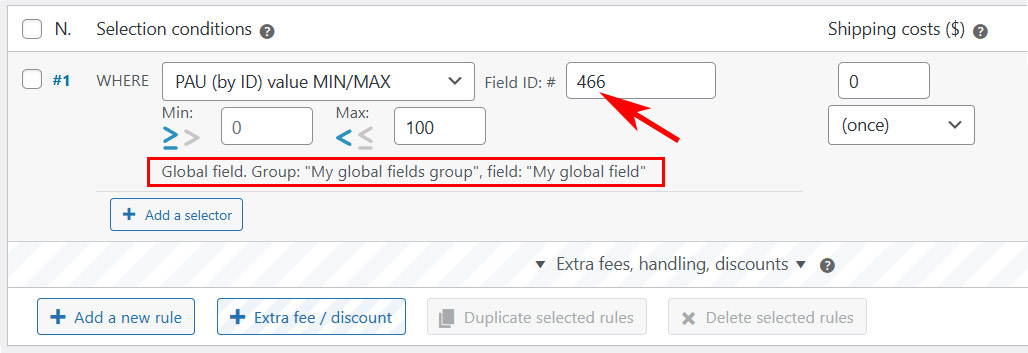
Shipping rules with product / local fields:
If you’re using local fields (specific to each product), you can also enter a local field ID. In this case, the rule will only apply to a specific product. Alternatively, you can choose to enter the field label instead of the ID. For example: you can set a rule that looks for all fields (local and global) of products with the label “surface,” “length,” or “gift wrap.”
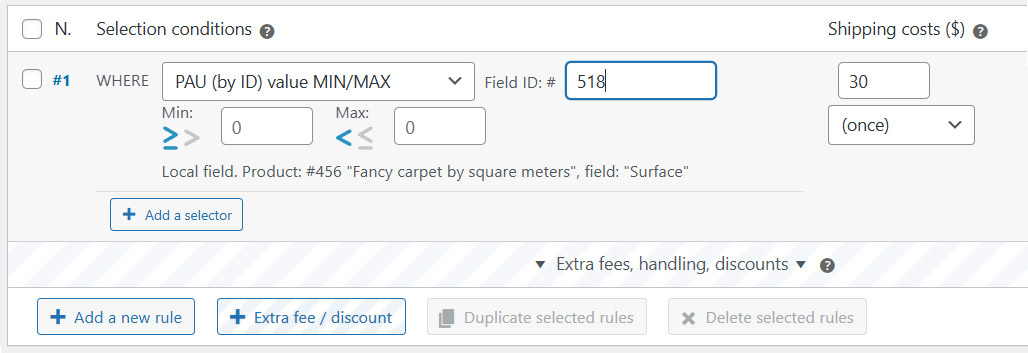
Can “Label” be used with global fields?
Yes, it can be used. But always bear in mind that you’ll need to be cautious about which fields have this label, as it can be edited in the future, etc. A field ID implementation will always be more robust than using a label. However, the contextual helper will show how many products have a field that matches the label you entered: this will help you detect potential issues while setting up the rules.

Advanced Shipping Rules for Numerical and Binary Comparisons
With Advanced Shipping Rates for WC, you can apply numerical or binary comparisons to custom fields.
If you’re looking at a numerical input field, a calculation field, or the price calculated in any field of WooCommerce Product Add-Ons Ultimate, you can use a numerical comparison selector, setting a minimum and maximum value for the rule to apply:
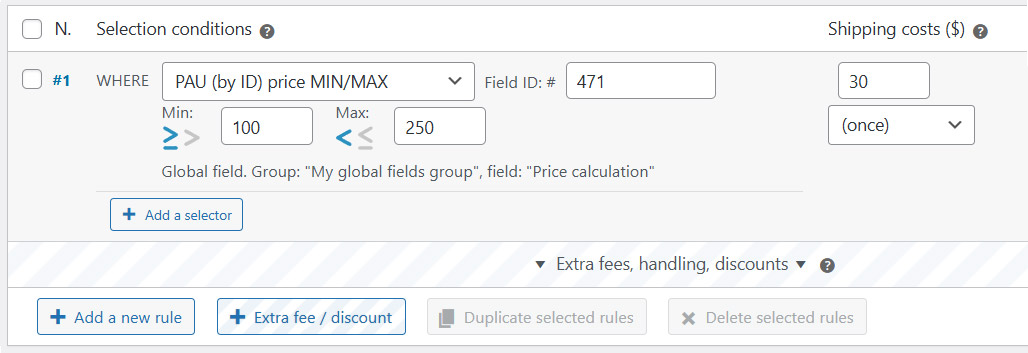
If, on the other hand, you’re using any other type of field, you will need to use the “equals” or “not equals” selectors:
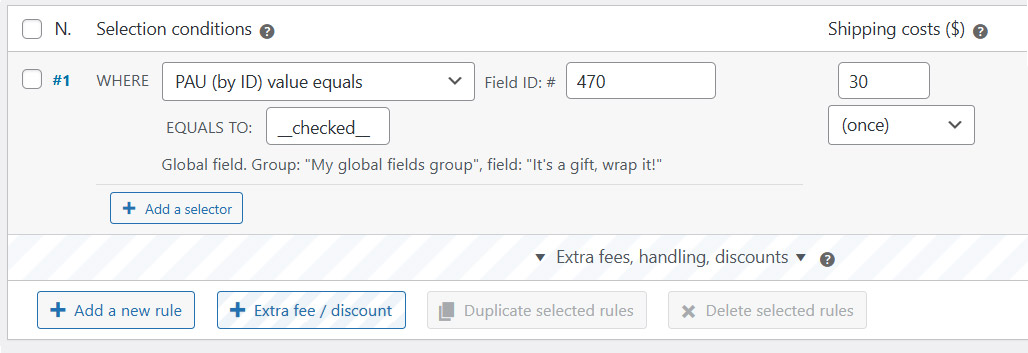
Conditional Shipping Rates with WooCommerce Product Add-Ons Ultimate and Advanced Shipping Rates for WC selectors
Advanced Shipping Rates for WC selectors can be combined for more complex scenarios. For instance, imagine you’re creating a rule for wood flooring, based on surface area, where the field label is “Surface” but this label is also used for tiles and you want to exclude it:
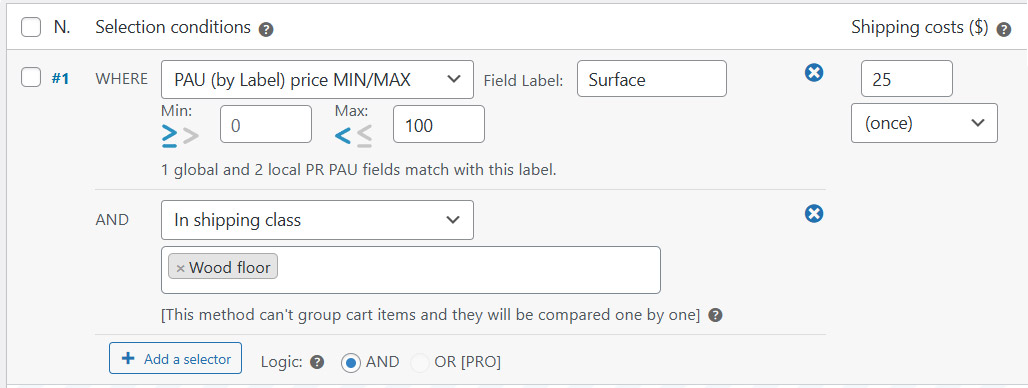
Debugging Shipping Rules with WooCommerce Product Add-Ons Ultimate
Advanced Shipping Rates for WC offers a robust logging tool for debugging. Enable logging to test your rules: Add products to the cart, refresh the log, and review the calculated values from WooCommerce Product Add-Ons Ultimate expanding the nodes. This helps a lot to verify the accuracy of your rules:
